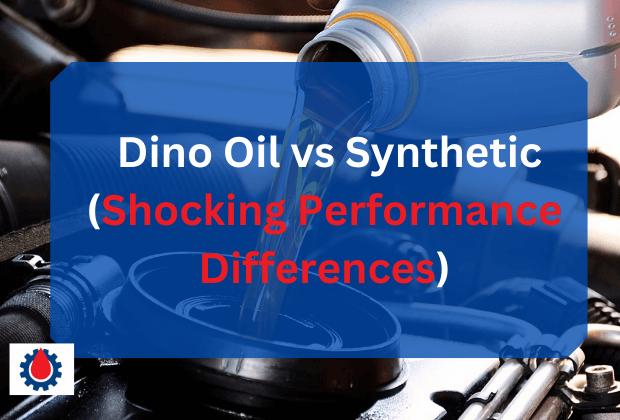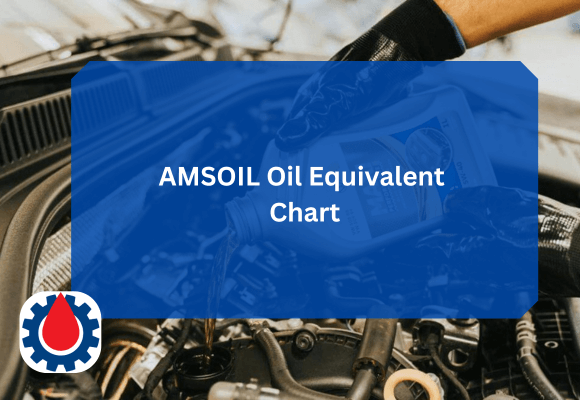When it comes to motor oil, you have two main choices: traditional dino oil and synthetic oil. For many car owners, the debate over which is better seems never-ending.
Both types of oil serve the essential purpose of lubricating your engine, but they do so in slightly different ways. Understanding the pros and cons of each can help you make an informed decision for your vehicle. Let’s jump in.

Dino Oil vs Synthetic Oil
| Feature | Dino Oil | Synthetic Oil |
|---|---|---|
| Source | Derived from crude oil | Chemically engineered |
| Cost | Lower | Higher |
| Lifespan | 3,000 – 5,000 miles | 7,500 – 10,000 miles |
| Engine Protection | Adequate | Superior |
| Performance in Extreme Heat | May break down | Stable and consistent |
| Performance in Cold Starts | Thickens, slower to circulate | Stays fluid, quicker protection |
| Engine Cleanliness | More impurities, potential sludge | Fewer impurities, cleaner engine |
| Fuel Efficiency | Standard | May improve fuel economy |
| Compatibility | Better for older engines | Recommended for newer engines |
| Environmental Impact | Higher (more frequent changes, more waste) | Lower (less waste, longer lifespan) |
| Availability | Widely available | Increasingly available |
| Maintenance Frequency | Requires more frequent oil changes | Fewer oil changes needed |
| Ideal For | Budget-conscious drivers, older vehicles | High-performance engines, extreme conditions |
| Filter Life | Shorter due to more impurities | Longer due to fewer impurities |
| Use in Heavy Loads | Adequate | Better for heavy-duty tasks |
| Oil Composition | Natural, contains impurities | Purified, custom-engineered |
What is Dino Oil?
Dino oil, short for “dinosaur oil,” is the more common name for conventional motor oil. This type of oil is derived from crude oil, a natural resource that’s been around for millions of years. It’s refined and processed to meet the requirements for use in car engines.
Dino oil has been the standard choice for decades. It’s generally less expensive than synthetic oil and is widely available. Because it comes directly from the earth, it contains a variety of impurities that can affect performance. These impurities are removed during refining, but some still remain.
What is Synthetic Oil?
Synthetic oil is engineered in a lab to meet the specific demands of modern engines. Instead of being directly derived from crude oil, synthetic oil is made from chemically modified components. This process allows manufacturers to control the molecular structure of the oil, optimizing it for performance.
Synthetic oils are designed to provide superior protection under extreme conditions, whether it’s high heat, heavy loads, or cold starts. They also contain fewer impurities than conventional oils, which contributes to their overall efficiency.
Read Royal Purple oil vs Mobil 1(Which Oil Outperforms the Other)
Dino Oil: Advantages and Disadvantages
Advantages:
- Affordability: Dino oil is typically cheaper than synthetic oil. For those on a tight budget, this can be a significant advantage, especially if you drive an older vehicle that doesn’t require high-performance oil.
- Widespread Availability: You can find dino oil almost anywhere—gas stations, auto parts stores, and even supermarkets. Its availability makes it convenient to purchase and use.
- Adequate for Older Engines: Older engines that were designed with conventional oil in mind may not benefit as much from synthetic oils. Dino oil works well with these engines, ensuring they run smoothly.
Disadvantages:
- Shorter Lifespan: Dino oil needs to be changed more frequently than synthetic oil. Typically, you’ll need an oil change every 3,000 to 5,000 miles, depending on driving conditions.
- Less Protection: Because it contains more impurities, dino oil doesn’t offer the same level of protection as synthetic oil. This can lead to increased engine wear over time.
- Performance Issues in Extreme Conditions: Dino oil can break down more quickly under extreme heat or cold, reducing its ability to protect the engine.
Read Honda Recommended Oil(Choose the Right Oil)
Synthetic Oil: Advantages and Disadvantages
Advantages:
- Longer Lifespan: Synthetic oil can last up to 7,500 or even 10,000 miles before needing a change. This is significantly longer than the lifespan of dino oil, reducing the frequency of oil changes and the associated costs.
- Superior Engine Protection: Synthetic oils are engineered to protect your engine better, particularly under extreme conditions. Whether you’re dealing with high temperatures, heavy loads, or cold starts, synthetic oil maintains its viscosity and provides consistent lubrication.
- Cleaner Engine: With fewer impurities, synthetic oil helps keep your engine cleaner. This reduces the buildup of sludge and deposits, which can enhance the engine’s efficiency and longevity.
- Better Fuel Economy: Some studies suggest that synthetic oil can improve fuel economy by reducing engine friction. This can lead to savings at the pump over time.
Disadvantages:
- Higher Cost: The primary drawback of synthetic oil is its price. It can be two to four times more expensive than conventional oil. While the longer lifespan and better performance may offset this cost, it’s still a consideration for budget-conscious drivers.
- Potential Overkill for Older Engines: For older vehicles that aren’t driven hard or under extreme conditions, synthetic oil might be overkill. The benefits it provides might not justify the extra cost.
- Availability: Although more widely available than in the past, synthetic oil isn’t as universally stocked as dino oil. This may not be a significant issue, but it’s worth noting, especially if you find yourself in a pinch and need an oil change in a remote location.
Read Is MAG1 Oil Good(Unbelievable Benefits)
Performance Differences in Various Conditions
High Temperatures: Synthetic oils outperform dino oils at high temperatures. In hot weather or under heavy loads, engines can generate a lot of heat. Synthetic oil is less likely to break down under these conditions, maintaining its protective qualities longer than conventional oil.
This makes synthetic a better choice for vehicles that operate in hot climates or for heavy-duty applications like towing.
Cold Starts: Cold starts are another scenario where synthetic oil shines. In freezing temperatures, dino oil can thicken, making it harder for the engine to circulate it quickly.
This delay can lead to increased wear during startup. Synthetic oil remains more fluid at low temperatures, ensuring that the engine receives proper lubrication from the moment it starts.
Heavy Loads: If you frequently tow trailers, haul heavy loads, or drive in mountainous areas, synthetic oil can offer better protection. These conditions put extra strain on your engine, and synthetic oil’s stability helps maintain performance and longevity.
Read Substitutes for Exmark Hydro Oil(Top 5 Substitutes)
Maintenance Considerations
When deciding between dino oil and synthetic oil, it’s essential to consider your maintenance habits. If you’re diligent about getting regular oil changes, the benefits of synthetic oil might not be as pronounced.
However, if you tend to go longer between oil changes, the extended life and better protection offered by synthetic oil could save your engine from unnecessary wear and tear.
Using synthetic oil can also extend the life of your oil filter. Since synthetic oil contains fewer impurities, it doesn’t clog the filter as quickly, allowing it to perform more effectively for longer periods.
Environmental Impact
Dino oil and synthetic oil also differ in their environmental impact. Dino oil, being derived from crude oil, relies on fossil fuel extraction, which has significant environmental implications, including greenhouse gas emissions and the risk of oil spills.
While synthetic oil also has a carbon footprint, it’s generally lower, especially when considering its longer lifespan, which means fewer oil changes and less waste.
Moreover, used motor oil is a significant environmental concern. Proper disposal is crucial, as improperly disposed motor oil can contaminate water supplies and harm wildlife.
Because synthetic oil lasts longer, using it can reduce the overall volume of waste oil generated, making it a more environmentally friendly choice in the long run.
Compatibility with Vehicles
Modern vehicles often come with manufacturer recommendations for the type of oil to use. Many newer cars, especially those with high-performance engines, require synthetic oil.
This is because these engines are designed to operate at higher temperatures and under more stress, conditions where synthetic oil provides superior protection.
On the other hand, older vehicles, particularly those with high mileage, might be better suited to conventional oil. The slightly thicker nature of dino oil can be beneficial for engines with more wear, helping to reduce leaks and maintain pressure.
Read GM Goodwrench Oil(What Happened to GM Goodwrench Oil?)
Cost Considerations Over Time
While synthetic oil is more expensive upfront, it’s worth considering the long-term costs. Fewer oil changes can mean savings on service costs and less frequent trips to the mechanic.
Also, the superior protection offered by synthetic oil can potentially extend the life of your engine, reducing the likelihood of costly repairs down the road.
For those driving high-mileage vehicles, the cost of synthetic oil might seem unnecessary, but it’s important to weigh this against the potential benefits, such as improved performance, better fuel efficiency, and less wear and tear on the engine.
Synthetic Blends: A Middle Ground
If you’re torn between dino oil and synthetic oil, synthetic blends offer a compromise. These oils mix conventional and synthetic oils, providing some of the benefits of synthetic oil at a lower cost.
They’re an excellent choice for drivers who want enhanced protection without paying the full price for a fully synthetic product.
Synthetic blends still offer better performance than dino oil, particularly in extreme conditions. While they don’t last as long as fully synthetic oils, they do extend the interval between oil changes compared to conventional oil.
Making the Right Choice for Your Vehicle
When deciding between dino oil and synthetic oil, consider your vehicle’s needs, your driving habits, and your budget. For newer, high-performance vehicles or those driven in extreme conditions, synthetic oil is often the better choice. It offers superior protection, improved performance, and longer intervals between oil changes.
For older vehicles or those driven in less demanding conditions, dino oil can be an adequate and cost-effective option. Just be prepared for more frequent oil changes and potentially less protection in extreme conditions.
FAQs
What is the main difference between dino oil and synthetic oil?
Dino oil is derived from crude oil, while synthetic oil is engineered from chemically modified components for better performance and protection.
Is synthetic oil worth the extra cost?
For many drivers, especially those with newer or high-performance vehicles, the benefits of synthetic oil, such as longer life and better engine protection, justify the higher cost.
Can I switch from dino oil to synthetic oil?
Yes, most vehicles can switch from dino oil to synthetic oil without issues. It’s best to consult your vehicle’s manufacturer guidelines.
How often should I change synthetic oil?
Synthetic oil typically lasts between 7,500 and 10,000 miles before needing a change, depending on driving conditions.
Is synthetic oil better for the environment?
Synthetic oil has a lower environmental impact due to its longer lifespan and reduced waste oil generation, despite still being derived from fossil fuels.
Does synthetic oil improve fuel efficiency?
Yes, synthetic oil can improve fuel efficiency by reducing engine friction, leading to potential savings on fuel costs.
Final word
The debate between dino oil and synthetic oil comes down to your vehicle’s needs, driving conditions, and budget. While synthetic oil offers clear advantages in terms of protection, longevity, and performance, dino oil remains a viable option for those seeking a more cost-effective solution.




